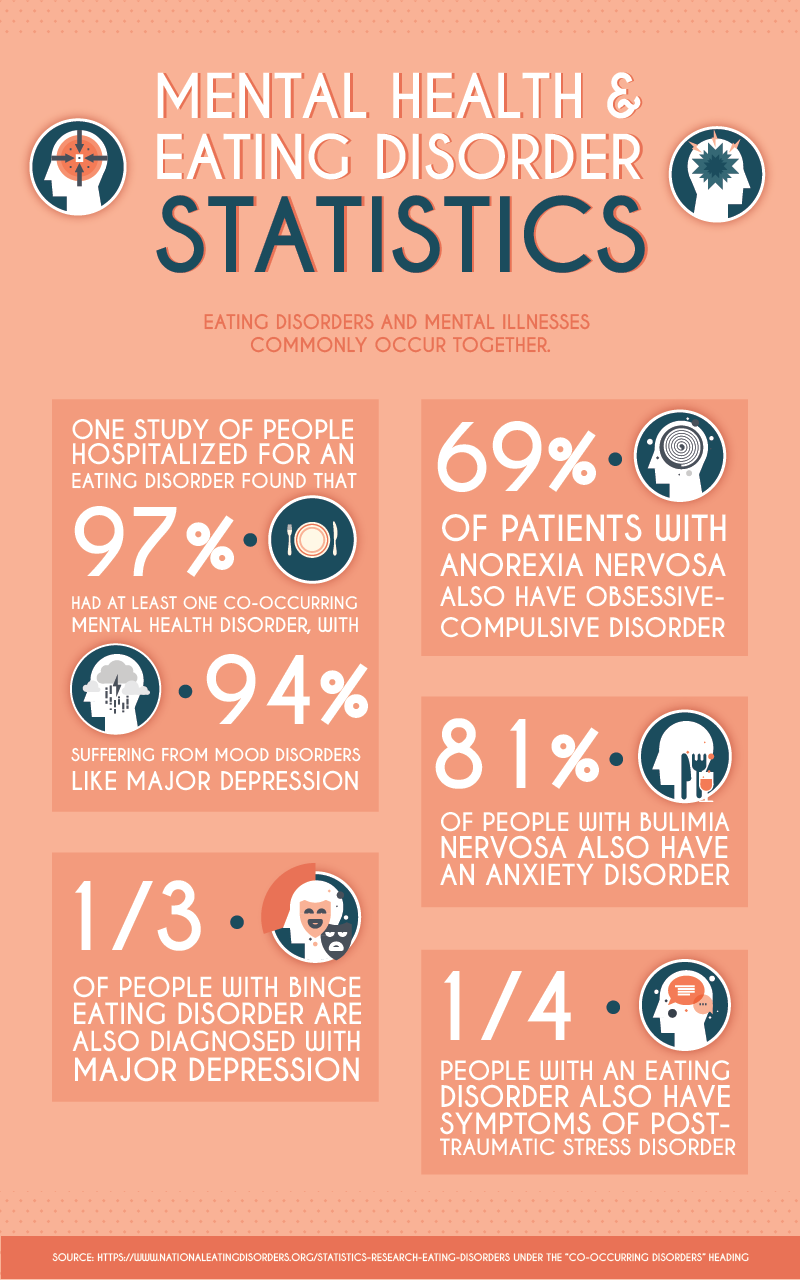9% of the United States suffers from an eating disorder each year and thanks to the anxiety and stress increasing throughout the pandemic, they’re on the rise.
We’ve all seen the pictures. The Instagram posts, the magazine covers, the red carpet shots, the at-the-gym mirror selfies. The ones that make us feel just a little worse about ourselves and our bodies. As society has become more accepting of different communities, there have been more and more videos and articles posted about self-love, body-acceptance, and shutdowns of fatphobic communities. But eating disorders are still on the rise. The pandemic has induced more stress into our lives than ever before and those with all kinds of mental disorders have felt that strain.
With the increase of body positivity, accounts promoting frequent visits to the gym, and muscle building have also made an appearance. By itself, the gym lovers are healthy and they seem to only promote muscle building and exercise; however, calorie counting and body obsessions can follow, which is dangerous. It can start a hatred of your own body and comparison to unrealistic body types. Anytime someone starts to compare themselves to celebrities and feel bad about themselves because they don’t naturally look like the picture perfect version of fame, it is unhealthy. This can lead to eating disorders like Anorexia, Bulimia Nervosa, or Binge Eating. These comparisons and calorie countings can turn fatal.
While calorie counting can start a healthy journey into weight loss, it can also sour a relationship with food. Suddenly, food isn’t seen as a way to power your body and give you energy for your daily tasks. Food is something that must be restricted in order to keep yourself healthy. Food transforms into calories, which can have negative connotations. And re-training a mind to see food as unharmful and healthy can be really, really difficult.
Most eating disorders have a reputation for having a long road to recovery or being one of the hardest disorders to ‘cure’. Fortunately, there is help. There are online resources, recovery centers, counseling services, and more available. The closest clinic to Fremont that specializes in tough mental disorders is Linda S. Protzman Counseling Services. Some good websites to talk to someone about anything you may be struggling with are: www.nationaleatingdisorders.org/help-support/contact-helpline
anad.org
www.onlinemswprograms.com/resources/resources-eating-disorder-recovery/
Some good numbers to call for any kind of mental disorder help are:
1-800-487-4889
1-800-950-6264
If you are struggling with any sort of disorder, eating or not, please talk to someone and seek help. You are loved, you are cared for, and you deserve help. Linda Protzman says, “There’s no problem that cant be resolved if people are willing to work”.

